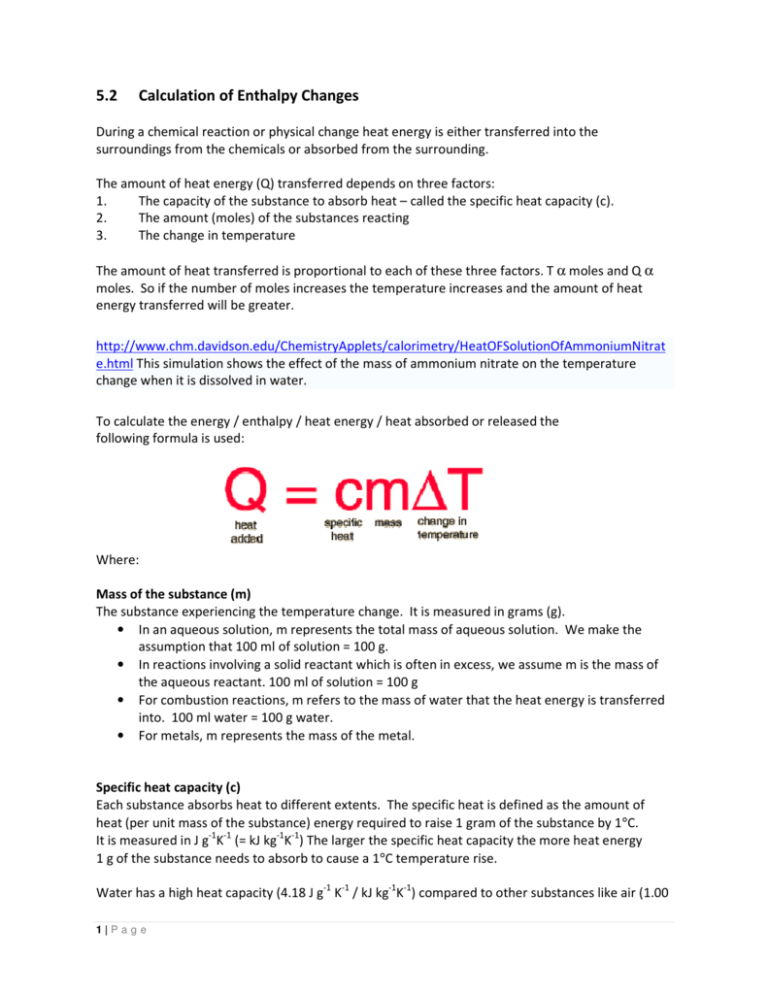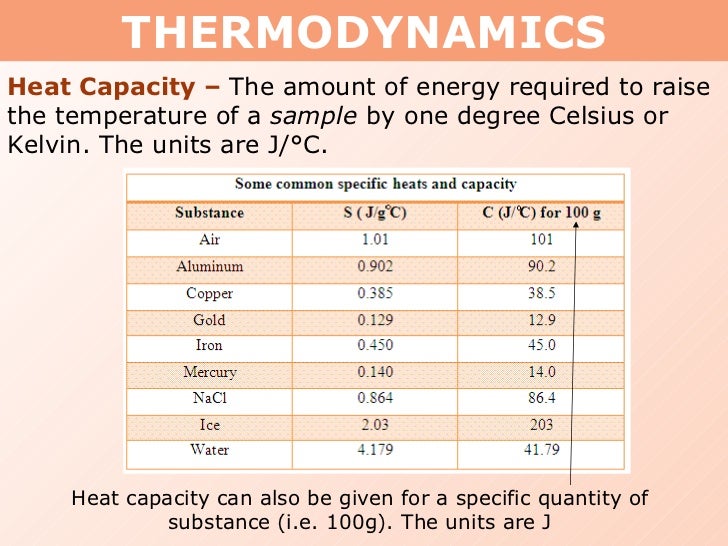
Specific Heat Capacity Of Sodium Hydroxide In J/gc
The DOW reference is good because they make Sodium Hydroxide. A good library reference on chemicals is Perry's Handbook of Chemical Engineering. It has a table of Sodium Hydroxide heat capacities for solutions. And NO, the density of a solution is NOT the same as water unless it is very dilute. Swampie777 ( Chemical Engineer). Thermal diffusivity, specific heat capacity, density and thermal conductivity of stainless steel AISI 310 vs. Stainless Steel Classifications. You will find that the specific heat capacity of the sodium hydroxide in pure form is about 1491.5 J/ (Kg.degK). If water has a specific heat capacity of 4200 J/ (Kg.degK), the specific heat. Table 3 Specific heats of caustic soda in Btu/lb°F 30 Graph 1 Boiling and solidifying temperature of aqueous caustic soda solutions 31 Graph 2 Specific gravity of aqueous caustic soda solutions 32. Determination of sodium hydroxide in caustic soda 46 Determination of sodium carbonate in caustic soda 49 Determination of sodium chloride in.
Click to see full answer.
Similarly, what is the heat of neutralization of HCl and NaOH?

The heat of reaction of one mole of H+ and OH- is 57.3 KJ. So, the heat of neutralisation of HCl and NaOH will be very cery close to 57.3 KJ per mole( As Both HCl and NaOH are strong elctrolytes so both of them quite easily without any considerable expense of energy furnish H+ and OH- ions respectively.
why is the reaction between NaOH and HCl exothermic? - When a reaction is endothermic - Bonds are broken and energy is absorbed from the surroundings. In your example of HCl + NaOH - this is a neutralisation reaction to form NaCl + H20. Basically there is more bond making than bond breaking in this reaction so the Delta H is negative - it is more exothermic.
In this manner, what equation is appropriate to calculate the heat produced from the HCl NaOH reaction?
Specific Heat Capacity Formula
Calculate the number of moles of base you add to determine the molar heat of neutralization, expressed using the equation ΔH = Q ÷ n, where 'n' is the number of moles. For example, suppose you add 25 mL of 1.0 M NaOH to your HCl to produce a heat of neutralization of 447.78 Joules.
Is the reaction between HCl and NaOH endothermic or exothermic?
This reaction is classified as an exothermic reaction. The reaction of HCl(aq), a strong acid, with NaOH(aq), a strong base, is an exothermic reaction.